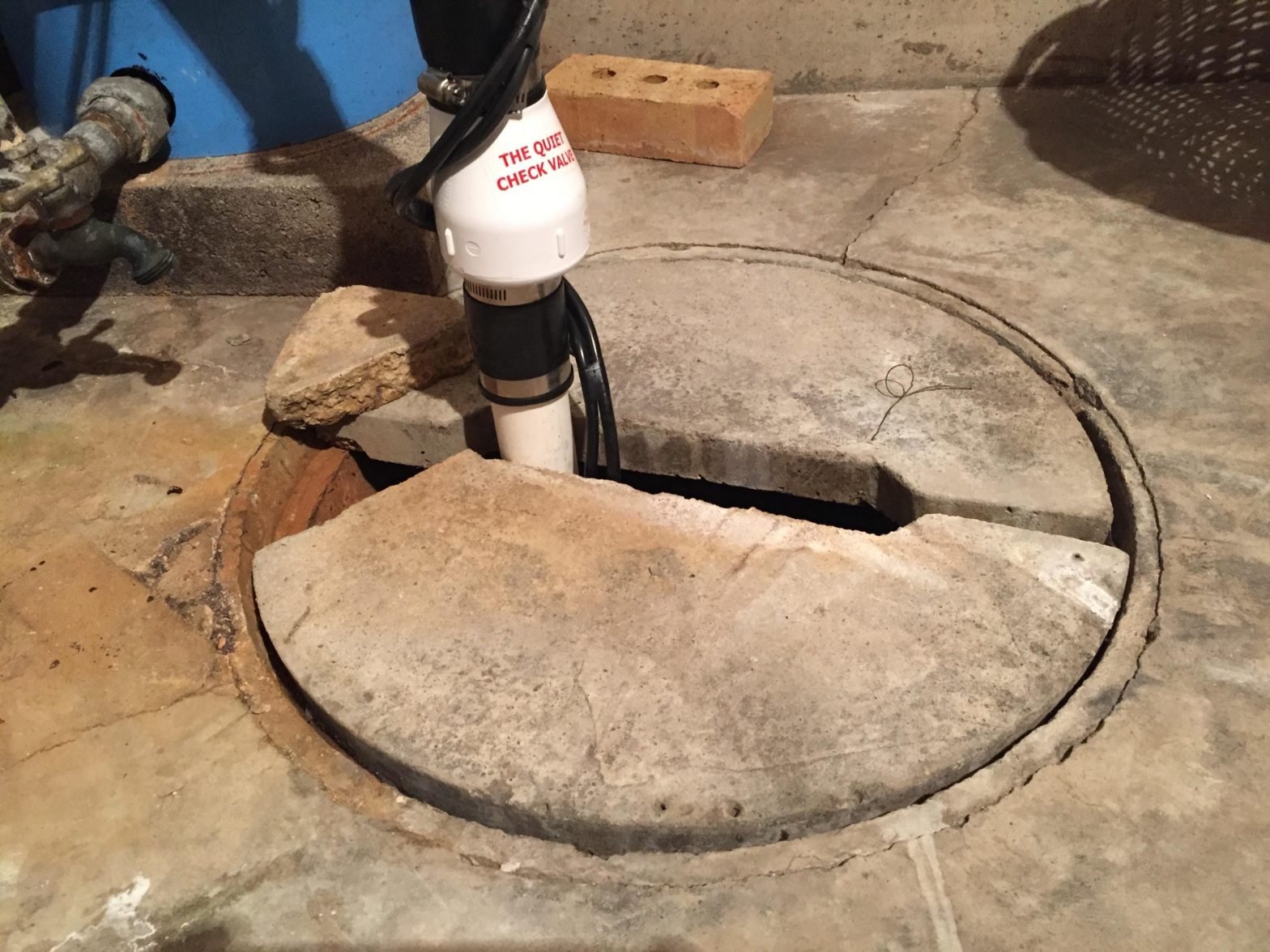![According to a large insurance company that insures home inspectors, water intrusion and water damage contribute to the two most common claims against home inspectors. [Photo courtesy of RICHARD MONTGOMERY]](http://127.0.0.1/wordpress/wp-content/uploads/2022/01/ghows-DA-6f8ded26-0cd7-7544-e053-0100007f1850-b425fa88-scaled.jpeg)
Reader Question: The house I am buying has a sump pump because of a standing water problem. I have looked at the home three times and each time I saw standing water in the next door neighbor’s yard. They had dug a long trench which runs along the side of their house facing my house. The channel is about 6 inches deep. I can deal with my standing water issue, but I fear the neighbor’s water trench will attract mosquitoes, rats, and more. I have already signed a contract. What are my options?
Monty’s Answer: There are many questions about your situation to explore before deciding on a solution. The neighbor’s problem may be one where you can do little or nothing. Here is an article at http://bit.ly/2LCy4i6 about water issues with neighbors from a homeowner to provide you with additional information. You seem confident that you can manage your water situation, but if the neighbor is not cooperative, or the cause of the water’s presence goes beyond your neighbor, it may be in your best interest to investigate further before you take the title.
Water, water, everywhere
According to a large insurance company that insures home inspectors, water intrusion and water damage contribute to the two most common claims against home inspectors. Many property insurance companies have water at or near the top of their claims list for frequency, but not severity. Geographical location plays a role in water issues and they can be elusive. For example, there will be water in one basement, and the next door neighbor’s basement is completely dry.
Some questions to consider
— Do you have a “out” from the contract? Could you walk away without a penalty?
— Do you have a survey from a licensed land surveyor that identifies the exact location of the boundary between your home and the neighbor that includes the location of the trench? It is important to ascertain that the trench does not encroach on the property.
— Does the neighbor have a sump pump?
— You state you can deal with your standing water issue. Is it because you have a sump pump?
— Where is your sump pump located, and where does the drain exit your lot?
— What have you been told about the standing water? Who has transferred this information to you? The seller? The seller’s real estate agent? Your real estate agent?
— Were you furnished with a Seller Disclosure Report (sample at http://bit.ly/2kXxyjc)? What does it say about water?
— When did the neighbor dig the trench? If they filled the trench, would the water then migrate into your yard? Understanding the topography would be helpful in answering this question.
— Do the homes in the area contain basements or are they built on shallow footings?
— Do all the homes in the area have a standing water problem?
A chronic issue?
If remedies are costly or non-existent standing water can affect the home’s value. Here are some suggestions to determine this:
— Go to the county or city website to the GIS link (example at http://bit.ly/2HCOmVt). The GIS maps have layers the user can click on that identify certain property conditions. Topography, wetlands, floodplains, boundaries, aerial photos that may identify the location of the trench to the lot line (GIS maps disclaim accuracy). Small towns and rural townships likely have this information on the county GIS maps.
— Contact a few of the neighbors to see what they may know about mosquitoes, vermin, flooding, etcetera, particularly near the home you are buying.
— If alarm bells go off, contact the municipality’s Public Works Department. Speak with an engineer that is familiar with the neighborhood. Does the city answer unusually high call volume about high water or other water-related issues in the area?
While you saw water on your first visit, you signed a contract before a concern about it. Why? Did the seller or a real estate agent explain the situation and you were satisfied, but have since discovered new information that has caused you to reconsider? Is it buyer remorse? Review your contract to see how much time, if any, you have to find answers to these questions and get expert advice on your options. If you have no time to investigate and cannot negotiate an extension, consider a legal opinion as to the consequences of terminating the contract.
Richard Montgomery is the author of “House Money – An Insider’s Secrets to Saving Thousands When You Buy or Sell a Home.” He is a real estate industry veteran who advocates industry reform and offers readers unbiased real estate advice. Ask him questions at DearMonty.com.

This article originally appeared on Santa Rosa Press Gazette: Should I buy a home with a standing water problem?
